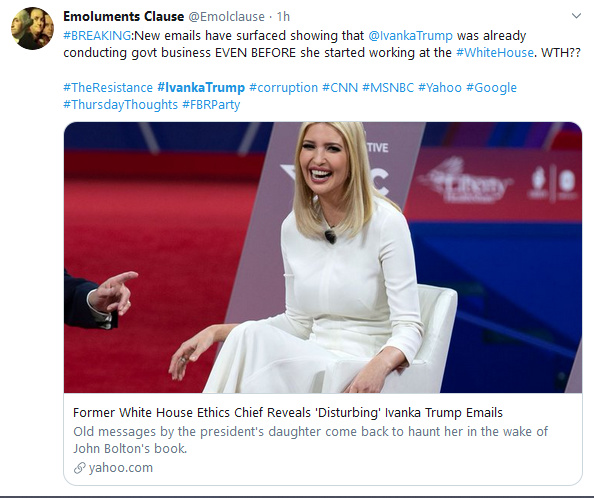More in depth reviews of Bolton’s book which will be scrutinized from all sorts of angles.
I believe the publisher is going to release it, despite the WH/DOJ attempt at holding back.
This reveals what we expected - T’s ineptitude, his lack of working knowledge of the world, backstabbing from within, some aides do dis T behind his back…and T’s playing one off the other.
Including full article.
Mr. Bolton describes several episodes where the president expressed willingness to halt criminal investigations “to, in effect, give personal favors to dictators he liked,” citing cases involving major firms in China and Turkey. “The pattern looked like obstruction of justice as a way of life, which we couldn’t accept,” Mr. Bolton writes, adding that he reported his concerns to Attorney General William P. Barr.
Mr. Bolton also adds a striking new allegation by saying that Mr. Trump overtly linked trade negotiations to his own political fortunes by asking President Xi Jinping of China to buy a lot of American agricultural products to help him win farm states in this year’s election. Mr. Trump, he writes, was “pleading with Xi to ensure he’d win. He stressed the importance of farmers, and increased Chinese purchases of soybeans and wheat in the electoral outcome.”
The book, “The Room Where It Happened,” was obtained by The New York Times in advance of its scheduled publication next Tuesday and has already become a political lightning rod in the thick of an election campaign and a No. 1 best seller on Amazon.com even before it hits the bookstores. The Justice Department filed a last-minute lawsuit against Mr. Bolton this week seeking to stop publication even as Mr. Trump’s critics complained that Mr. Bolton should have come forward during impeachment proceedings rather than save his account for a $2 million book contract.
Mr. Trump did not seem to know, for example, that Britain is a nuclear power and asked if Finland is part of Russia, Mr. Bolton writes. He came closer to withdrawing the United States from NATO than previously known. Even top advisers who position themselves as unswervingly loyal mock him behind his back. During Mr. Trump’s 2018 meeting with North Korea’s leader, according to the book, Secretary of State Mike Pompeo slipped Mr. Bolton a note disparaging the president, saying, “He is so full of shit.”
A month later, Mr. Bolton writes, Mr. Pompeo dismissed the president’s North Korea diplomacy, declaring that there was “zero probability of success.”
Mr. Trump said so many things that were wrong or false that Mr. Bolton in the book regularly includes phrases like “(the opposite of the truth)” following some quote from the president. And Mr. Trump in this telling has no overarching philosophy of governance or foreign policy but rather a series of gut-driven instincts that sometimes mirrored Mr. Bolton’s but other times were, in his view, dangerous and reckless.
“His thinking was like an archipelago of dots (like individual real estate deals), leaving the rest of us to discern — or create — policy,” Mr. Bolton writes. “That had its pros and cons.”
Mr. Bolton is a complicated, controversial figure. A former official under Presidents Ronald Reagan, George Bush and George W. Bush who rose to United Nations ambassador, he has been one of the most vocal advocates for a hard-line foreign policy, a supporter of the Iraq war who has favored possible military action against rogue states like North Korea and Iran.
Like Mr. Tillerson and other officials who went to work for Mr. Trump believing they could manage him, Mr. Bolton agreed to become the president’s third national security adviser in 2018 thinking he understood the risks and limits. But unlike some of the so-called “axis of adults,” as he calls Mr. Tillerson and former Defense Secretary Jim Mattis, who tried to minimize what they saw as the damage of the president’s tenure, Mr. Bolton sought to use his 17 months in the White House to accomplish policy goals that were important to him, like withdrawing the United States from a host of international agreements he considers flawed, like the Iran nuclear accord, the Intermediate-Range Nuclear Forces Treaty and others.
Mr. Bolton thought Mr. Trump’s diplomatic flirtation with the likes of North Korea’s Kim Jong-un and President Vladimir V. Putin of Russia were ill-advised and even “foolish” and spent much of his tenure trying to stop the president from making what he deemed bad deals. He eventually resigned last September — Mr. Trump claimed he fired him — after they clashed over Iran, North Korea, Ukraine and a peace deal with the Taliban in Afghanistan.
Mr. Bolton did not agree to testify during the House impeachment inquiry last fall, saying he would wait to see if a judge would rule that former aides like him should do so over White House objections. But after the House impeached Mr. Trump for pressuring Ukraine to publicly announce investigations into Democrats, including former Vice President Joseph R. Biden Jr., while withholding security aid, Mr. Bolton offered to testify in the Senate trial if subpoenaed.
The book confirms House testimony that Mr. Bolton was wary all along of the president’s actions with regard to Ukraine and that Mr. Trump explicitly linked the security aid to investigations involving Mr. Biden and Hillary Clinton. On Aug. 20, Mr. Bolton writes, Mr. Trump “said he wasn’t in favor of sending them anything until all the Russia-investigation materials related to Clinton and Biden had been turned over.” Mr. Bolton writes that he, Mr. Pompeo and Defense Secretary Mark T. Esper tried eight to 10 times to get Mr. Trump to release the aid.
Mr. Bolton, however, had nothing but scorn for the House Democrats who impeached Mr. Trump, saying they committed “impeachment malpractice” by limiting their inquiry to the Ukraine matter and moving too quickly for their own political reasons. Instead, he said they should have also looked at how Mr. Trump was willing to intervene in investigations into companies like Turkey’s Halkbank to curry favor with President Recep Tayyip Erdogan of Turkey or China’s ZTE to favor Mr. Xi.
Mr. Trump married politics with policy during a meeting with Mr. Xi on the sidelines of the Group of 20 summit meeting in Osaka, Japan, last summer, according to the book. Mr. Xi told Mr. Trump that unnamed political figures in the United States were trying to spark a new cold war with China.
“Trump immediately assumed Xi meant the Democrats,” Mr. Bolton writes. “Trump said approvingly that there was great hostility among the Democrats. He then, stunningly, turned the conversation to the coming U.S. presidential election, alluding to China’s economic capability to affect the ongoing campaigns, pleading with Xi to ensure he’d win.” Mr. Bolton says he would print Mr. Trump’s exact words “but the government’s prepublication review process has decided otherwise.”
Mr. Bolton does not say these are necessarily impeachable offenses and adds that he does not know everything that happened with regard to all of these episodes, but he reported them to Mr. Barr and Pat A. Cipollone, the White House counsel. They should have been investigated by the House, he said, and at the very least suggested abuses of a president’s duty to put the nation’s interests ahead of his own.
“A president may not misuse the national government’s legitimate powers by defining his own personal interest as synonymous with the national interest, or by inventing pretexts to mask the pursuit of personal interest under the guide of national interest,” Mr. Bolton writes. “Had the House not focused solely on the Ukraine aspects of Trump’s confusion of his personal interests,” he adds, then “there might have been a greater chance to persuade others that ‘high crimes and misdemeanors’ had been perpetrated.”
.
Second article/review
WAPO review
The Washington Post: Trump asked China’s Xi to help him win reelection, according to Bolton book
President Trump asked Chinese President Xi Jinping to help him win the 2020 U.S. election, telling Xi during a summit dinner last year that increased agricultural purchases by Beijing from American farmers would aid his electoral prospects, according to a damning new account of life inside the Trump administration by former national security adviser John Bolton.
During a one-on-one meeting at the June 2019 Group of 20 summit in Japan, Xi complained to Trump about China critics in the United States. But Bolton writes in a book scheduled to be released next week that “Trump immediately assumed Xi meant the Democrats. Trump said approvingly that there was great hostility among the Democrats.
“He then, stunningly, turned the conversation to the coming U.S. presidential election, alluding to China’s economic capability to affect the ongoing campaigns, pleading with Xi to ensure he’d win,” Bolton writes. “He stressed the importance of farmers, and increased Chinese purchases of soybeans and wheat in the electoral outcome. I would print Trump’s exact words but the government’s prepublication review process has decided otherwise.”
At the same meeting, Xi also defended China’s construction of camps housing as many as 1 million Uighur Muslims in Xinjiang — and Trump signaled his approval. “According to our interpreter,” Bolton writes, “Trump said that Xi should go ahead with building the camps, which Trump thought was exactly the right thing to do.”
The episode described by Bolton in his book, “The Room Where It Happened: A White House Memoir,” bears striking similarities to the actions that resulted in Trump’s impeachment after he sought to pressure the Ukrainian president to help dig up dirt on Democratic rival Joe Biden in exchange for military assistance. The China allegation also comes amid ongoing warnings from U.S. intelligence agencies about foreign election interference in November, as Russia did to favor Trump in 2016.
And on the Ukraine scandal itself, Bolton cites personal conversations with Trump confirming a “quid pro quo” that Trump had long denied, including an August meeting in which Trump allegedly made the bargain explicit.“He said he wasn’t in favor of sending them anything until all Russia-investigation material related to [Hillary] Clinton and Biden had been turned over,” Bolton writes.
The 592-page memoir, obtained by The Washington Post, is the most substantive, critical dissection of the president from an administration insider so far, coming from a conservative who has worked in Republican administrations for decades and is a longtime contributor to Fox News. It portrays Trump as an “erratic” and “stunningly uninformed” commander in chief, and lays out a long series of jarring and troubling encounters between the president, his top advisers and foreign leaders.
The book is the subject of an escalating legal battle between the longtime conservative foreign policy hand and the Justice Department, which filed a lawsuit Tuesday seeking to block its publication by alleging that it contains classified material. Bolton’s attorney has said the book does not contain classified material and that it underwent an arduous review process.
Trump and allies have plotted for several days on how to block or attack the book. Kayleigh McEnany, the White House press secretary, said on Wednesday that the tome still contained classified information.
Bolton describes the book as being based on both contemporaneous accounts and his own notes, and it includes numerous details of internal meetings and direct quotations attributed to Trump and others.
The request for electoral assistance from Xi is one of many instances described by Bolton in which Trump seeks favors or approval from authoritarian leaders. Many of those same leaders were also happy to take advantage of the U.S. president and attempt to manipulate him, Bolton writes, often through simplistic appeals to his various obsessions.
In one May 2019 phone call, for example, Russian President Vladimir Putin compared Venezuelan opposition leader Juan Guaidó to 2016 Democratic presidential nominee Clinton, part of what Bolton terms a “brilliant display of Soviet style propaganda” to shore up support for Venezuelan leader Nicolás Maduro. Putin’s claims, Bolton writes, “largely persuaded Trump.”
In May 2018, Bolton says, Turkish President Recep Tayyip Erdogan handed Trump a memo claiming innocence for a Turkish firm under investigation by the U.S. attorney for the Southern District of New York for violating Iranian sanctions.
“Trump then told Erdogan he would take care of things, explaining that the Southern District prosecutors were not his people, but were Obama people, a problem that would be fixed when they were replaced by his people,” Bolton writes.
Bolton says he was so alarmed by Trump’s determination to do favors for autocrats such as Erdogan and Xi that he scheduled a meeting with Attorney General William P. Barr in 2019 to discuss the president’s behavior. Bolton writes that Barr agreed he also was worried about the appearances created by Trump’s behavior.
In his account, Bolton broadly confirms the outline of the impeachment case laid out by Democratic lawmakers and witnesses in House proceedings earlier this year, writing that Trump was fixated on a bogus claim that Ukraine tried to hurt him and was in thrall to unfounded conspiracy theories pushed by presidential lawyer Rudolph W. Giuliani and others.
Trump was impeached in January by the Democratic-controlled House of abuse of power and obstruction of Congress, before being acquitted by the GOP-controlled Senate the next month. Bolton resisted Democratic calls to testify without a subpoena.
Bolton is silent on the question of whether he thinks that Trump’s actions related to Ukraine were impeachable and is deeply critical of how House Democrats managed the process. But he writes that he found Trump’s decision to hold up military assistance to pressure newly elected Ukrainian President Volodymyr Zelensky “deeply disturbing,” and that he tried to work internally to counter it, reporting concerns to Barr and the White House Counsel’s Office.
“I thought the whole affair was bad policy, questionable legally and unacceptable as presidential behavior,” he writes.
In the memoir, Bolton describes the president’s advisers as frequently flummoxed by Trump and said a variety of officials — including Chief of Staff John F. Kelly, Secretary of State Mike Pompeo and Bolton himself — all considered resigning in disgust or frustration. Even some of the president’s most loyal advisers hold a dim view of him in private, he writes.
“What if we have a real crisis like 9/11 with the way he makes decisions?” Kelly is quoted as asking at one point as he considers resigning.
“He second-guessed people’s motives, saw conspiracies behind rocks, and remained stunningly uninformed on how to run the White House, let alone the huge federal government,” Bolton writes, always looking to “personal instinct” and opportunities for “reality TV showmanship.”
Given Bolton’s expertise and his White House role from 2018 to 2019, the book is heavily focused on foreign policy episodes and decisions, from Ukraine and Venezuela to North Korea and Iran.
Bolton recounts numerous private conversations Trump had with other leaders that revealed the limits of his knowledge. He recalls Trump asking Kelly if Finland is part of Russia. In a meeting with then-British Prime Minister Theresa May in 2018, a British official referred to the United Kingdom as a “nuclear power,” and Trump interjects: “Oh, are you a nuclear power?” Bolton adds that he could tell the question about Britain, which has long maintained a nuclear arsenal, “was not intended as a joke.”
Bolton’s commentary ranges from expressions of disgust with the president’s actions to relief that advisers were able to prevent catastrophe. During a NATO summit in the summer of 2018, Bolton recounts a moment when Trump had decided to inform U.S. allies that the United States was going to withdraw from NATO if allies didn’t substantially increase defense spending by January.
“We will walk out, and not defend those who have not [paid],” read a message Trump dictated to Bolton.
Bolton tried to stop Trump from delivering the threat, and became even more alarmed when Trump told him, “Do you want to do something historic?”
During one trade meeting, Trump grew irate when advisers begun discussing Japan and the alliance, and began railing about Pearl Harbor, Bolton writes.
Bolton’s book is also filled with examples of Trump’s closest advisers sharply criticizing the president behind his back, including Pompeo.
After Trump completed a phone call with South Korea’s president ahead of the 2018 Singapore summit with North Korea, Pompeo and Bolton shared their disdain for the president’s handling of the conversation, he writes. Pompeo, having listened in on the call from the Middle East, told Bolton he was “having a cardiac arrest in Saudi Arabia.” Bolton shared his similar disappointment with the call, describing it as a “near death experience.”
Bolton attributes a litany of shocking statements to the president. Trump said invading Venezuela would be “cool” and that the South American nation was “really part of the United States.” Bolton says Trump kept confusing the current and former presidents of Afghanistan, while asking Japanese Prime Minister Shinzo Abe to help him strike a deal with Iran. And Trump told Xi that Americans were clamoring for him to change constitutional rules to serve more than two terms, according to the book.
He also describes a summer 2019 meeting in New Jersey where Trump says journalists should be jailed so they have to divulge their sources: “These people should be executed. They are scumbags,” Trump said, according to Bolton’s account.
Bolton describes in depth the feuding and backbiting among Trump’s cadre of advisers, as well as referring dismissively to Trump son-in-law Jared Kushner’s efforts to get involved in domestic and foreign policy issues. Almost every adviser — including Pompeo, Treasury Secretary Steven Mnuchin, former defense secretary Jim Mattis and former U.N. ambassador Nikki Haley — comes under the scalpel. By contrast, Bolton seems to hold himself in high regard and admits few mistakes of his own.
Bolton describes Trump as callously unconcerned about human rights violations. He writes that during an opening dinner of the G-20 meeting in Osaka in 2019 attended only by interpreters, Xi explained to Trump “why he was basically building concentration camps” in a northwest Chinese province where the government has been interning Uighurs, an ethnic minority.
According to Bolton, the U.S. interpreter said that Trump spoke approvingly of the camps. Bolton writes that he was told by Matt Pottinger, a National Security Council official who is hawkish on China, that Trump had said something similar during a 2017 trip to China.
“In my government experience, it was the most irrational thing I ever witnessed any president do,” he said.
“This is really dangerous,” Pompeo said, according to Bolton’s book, as both men fumed about the president.
For Trump, Bolton writes, one singular goal loomed above all: securing a second term.
“I am hard pressed to identify any significant Trump decision during my tenure that wasn’t driven by reelection calculations,” Bolton writes.
Bolton says Trump said he wanted out of Afghanistan during his second year instead of his third year so he could blame his predecessor for the war. Screaming about the border wall in a meeting with top advisers in 2018, Trump described why illegal immigration had to go down and the wall had to go up, according to Bolton’s book.
“I got elected on this issue and now I’m going to get unelected,” Trump said, startling those around him.
For all his public bluster, Bolton describes Trump as frequently uncertain, fretful and wobbly during difficult policy choices.
For instance, driven by a desire to please Florida Republicans, Trump talked tough about his desire to oust Maduro throughout much of 2018. But Bolton portrays Trump as inconsistent and worry-worn when presented with the opportunity to support Guaidó, who declared himself Venezuela’s president in January 2019. Though Trump approved of a proposal from Bolton to publicly declare the United States recognized Guaidó rather than Maduro, within 30 hours Trump was already worrying that Guaidó appeared weak — a “kid” compared to “tough” Maduro — and considering changing course. “You couldn’t make this up,” Bolton writes.
In describing his White House experience on Russia-related issues, Bolton presents a picture of a president who is impulsive, churlish and consistently opposed to U.S. policy designed to discourage Russian aggression and to sanction Putin’s malign behavior.
Bolton spends little effort trying to explain Trump’s sympathetic approach to Putin. But the book makes the case that there is a disturbing and undeniable pattern of presidential reluctance to embrace policies designed to inhibit Russian aggression. He describes in detail the events leading up to the widely panned Helsinki summit in July 2018, when Trump sided with Putin against U.S. intelligence agencies over Moscow’s interference in the 2016 presidential election.
“This was hardly the way to do relations with Russia, and Putin had to be laughing uproariously at what he had gotten away with in Helsinki,” Bolton writes.
Soon after he arrived at the White House, Bolton said Kelly gave him a warning. “You can’t imagine how desperate I am to get out of here,” Kelly said, according to Bolton’s book. “This is a bad place to work, as you will find out.”
“Has there ever been a presidency like this?” Kelly asks Bolton at one point, after telling Trump that his moves to remove security clearances from political foes such as John Brennan are “Nixonian” and “unpresidential.”
Throughout the book, he describes Trump and top advisers repeatedly slashing each other, lying to each other and maneuvering to gain advantage.
At one point, Bolton says he learned that Kushner was going to be calling the finance minister of Turkey because he was also Erdogan’s son-in-law.
“I briefed Pompeo and Mnuchin on this new ‘son-in-law channel’ and they both exploded. Pompeo was furious, Bolton writes, “because this was one more example of Kushner’s doing international negotiations he shouldn’t have been doing (along with the never quite ready Middle East peace plan).”
For extended periods of time, Trump kept telling different advisers they were in charge of border policy, according to Bolton’s book. One day in 2018 in the Oval Office, Kelly purportedly learned that Kushner was calling Mexican authorities when he barged into the Oval Office and said so.
“Why is Jared calling Mexicans?” Kelly asked loudly, according to the book. “Because I asked him to. How else are we going to stop the caravans?” Trump responded.
In November 2018, Trump came under fire for writing an unfettered defense of Saudi Crown Prince Mohammed bin Salman, littered with exclamation points, over the killing of Post columnist Jamal Khashoggi. But according to Bolton’s book, the main goal of the missive was to take away attention from a story about Ivanka Trump using her personal email for government business.
“This will divert from Ivanka,” Trump said, according to Bolton’s book. “If I read the statement in person, that will take over the Ivanka thing.”
Bolton repeatedly describes Trump lashing out at military leaders, demanding to withdraw troops from the Middle East and from Africa and Europe, too, even as they warn the president against it. “I want out of everything!” he said at one meeting in Bedminster, N.J., in 2019.
At another point, arguing in 2018 with Mattis, Trump told him that Russia should take care of the Islamic State.
“We’re seven thousand miles away but we’re still the target,” Trump said, according to the account. “ They’ll come to our shores. That’s what they all say. It’s a horror show. At some point we’ve got to get out.”
Describing the conflict in Afghanistan, Trump said: “This was done by a stupid person named George Bush.”
Trump repeatedly told Mattis that the defense official had been given a chance but had failed.
“I gave you what you asked for: Unlimited authority, no holds barred. You’re losing. You’re getting your ass kicked. You failed,” Trump says.
Determined to make friends with North Korean leader Kim Jong Un, Trump decided that he wanted to give Kim some American gifts — gifts that violated U.S. sanctions that eventually had to be waived, per Bolton’s book.
When Bolton recounts the Trump-Kim meeting in Singapore, the first summit of U.S. and North Korean leaders in history, Bolton castigates Trump’s diplomatic efforts, saying the president cared little for the details of the denuclearization effort and saw it merely as a “an exercise in publicity.”
He describes it extensively — including what Kim and his advisers say, and what Trump and his advisers say in return, giving a fly-on-the-wall account of a historic event.
“Trump told . . . me he was prepared to sign a substance-free communique, have his press conference to declare victory and then get out of town,” Bolton wrote.
In the months following the summit, Bolton described Trump’s inordinate interest in Pompeo delivering an autographed copy of Elton John’s “Rocket Man” on CD to Kim during Pompeo’s follow-on visit to North Korea. Trump had used the term “Little Rocket Man” to criticize the North Korean leader but subsequently tried to convince Kim that it was a term of affection.
“Trump didn’t seem to realize Pompeo hadn’t actually seen Kim Jong Un [during the trip], asking if Pompeo had handed” the CD, wrote Bolton. “Pompeo had not. Getting this CD to Kim remained a high priority for several months.”

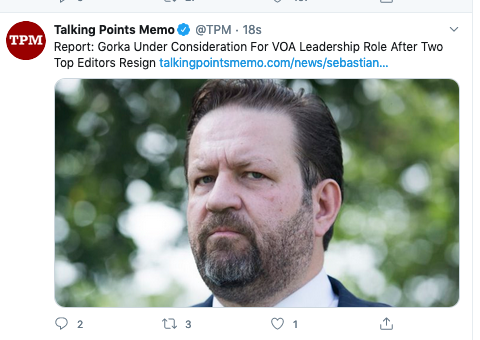
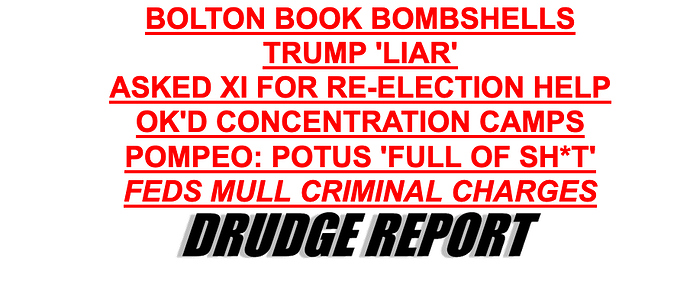



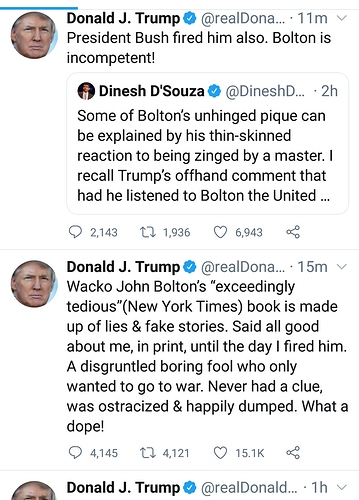
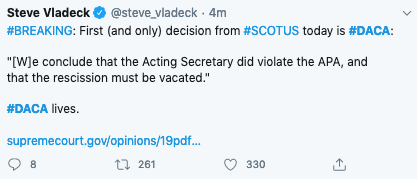
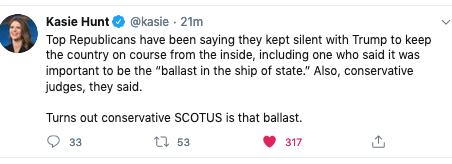
 Portrait of a President
Portrait of a President